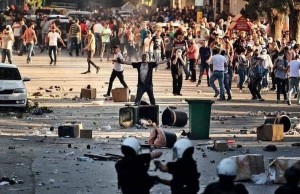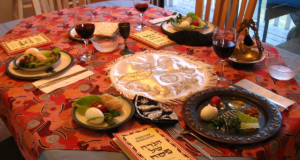That fearless attitude of getting the story no matter what, unless the story somehow implies Palestinian have agency.
 Ramallah, June 28 – Intrepid journalists from some of the planet’s leading outlets continued to justify their earned reputation for getting out the stories the world needs to hear, as they displayed the nerve necessary to ignore ongoing violent suppression of dissent by President Mahmoud Abbas’s administration.
Ramallah, June 28 – Intrepid journalists from some of the planet’s leading outlets continued to justify their earned reputation for getting out the stories the world needs to hear, as they displayed the nerve necessary to ignore ongoing violent suppression of dissent by President Mahmoud Abbas’s administration.
Media observers expressed once again today their admiration and marvel for the fearless reporters from the New York Times, British Broadcasting Corporation, Reuters, The Guardian, the Associated Press, Agence France-Presse, and other marquee names in international news, whose go-getter approach to informing readers and audiences what they need to know about this strategic region forces them to perform the daring, daunting task of pretending not to see or need to report on Palestinian dissatisfaction with its autocratic leadership and the latter’s use of thuggery, intimidation, and deadly force to discourage the former, except as a roundabout reference in a larger Israel-demonizing narrative.
“They are so good at what they do,” gushed CNN commentator Christiane Amanpour. “They know what it’s all about, having that fearless attitude of getting the story no matter what, unless the story somehow implies Palestinian have agency, in which case it has to be couched in terms of Israeli moral failure.”
BBC personality Jeremy Bowen acknowledged the praise with characteristic humility. “It’s not easy, but it’s what we signed up to do,” he allowed. “We have standards to maintain and an audience who counts on us to shape their perception of the world. We do that by bolstering the assumption that Jews with power can’t be trusted, and that Palestinians are the darling underdogs. Developments that challenge or undermine those assumptions must remain underreported, lest the delicate picture we have painted in the minds of the public suffer from complexity, or worse, the extent of our bias becomes more widely known.”
David Halbfinger of the New York Times added that the poor-Palestinians-can’t-be-faulted-for-their-failings-unless-it’s-to-make-Israel-look-even-worse attitude applies whether Israel plays a direct role in the story or not. “In Gaza, when Israel was bombing tunnels and Hamas positions, it was pretty straightforward to show Palestinian suffering and let the images do the moral work,” he explained. “But when it comes to the violence of Abbas’s Fatah loyalists against those who dare challenge his authority, it becomes necessary to ‘contextualize’ the violence as more than just repression of dissent by a non-democratic regime; we must depict the regime not as the once-elected leaders of the Palestinian Authority, but as Israel’s lackey, merely a cog in the Occupation-solidifying mechanism that discriminates of Arabs in favor of Jews.”
Please support our work through Patreon.




